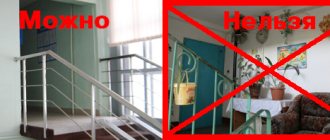What are the differences between organizations?
To find the difference between these organizations, you need to formulate a definition of the concepts, since the decoding of both abbreviations is not informative, since it does not reveal details.
The concept of TSN came into circulation relatively recently and some do not even know about its existence, since they can easily confuse it with HOA. As a separate legal form of existence of legal entities, TSN was introduced in 2014 with the adoption of Federal Law No. 99.
Reference! A real estate owners' association is an association of owners of any residential property, including not only apartments, but also buildings, as well as premises intended for commercial use and even land plots.
This association is concluded on a voluntary basis.
Such a legal form as the HOA has existed much longer, which explains its greater popularity.
In Article 135 of the Housing Code of the Russian Federation, an HOA is defined as a non-profit association of individuals, owners of residential premises in one specific apartment building or several specific residential buildings. The establishment of a homeowners' association is carried out at a general meeting and the approval of half the number of residents is sufficient for its creation.
Homeowners association functions
By the letters of the abbreviation TSZh, you can understand that this is a homeowners' partnership.
ATTENTION! In this case, housing refers only to apartments in apartment buildings. The functioning of HOAs is determined by the Housing Code of the Russian Federation in the relevant articles.
Such a public formation is created so that apartment owners have the opportunity, with the help of the partnership, to qualitatively manage the life of the house, common property, defend their rights when paying for utilities, and resolve various issues related to the maintenance of the building.
This method of management is reflected in Part 2 of Article 161 of the RF Housing Code. It also specifies other methods of managing a house - a housing or consumer cooperative, a management company.
The HOA, as a form of management, has its own rights and obligations; its activities are based on the decisions of planned and unscheduled general meetings, which necessarily end with the drawing up of minutes with the decisions made. The procedure for holding a general meeting of HOA members is regulated by Part 3 of Art. 161 of the Housing Code.
An important feature of this partnership is that it operates on a non-profit basis and does not have profit as its goal.
Pros and cons of a homeowners' association
The positive aspects inherent in HOAs include the following aspects:
- Opportunity to influence the activities of the management company. Since all decisions in the HOA are made by a meeting consisting mainly of residents, if it, for example, does not approve the decision of the Management Committee to repair the entrance using expensive materials, then they will not be used in the repair work.
- Possibility of choosing a management company. The HOA may refuse services offered by third-party contractors and hire specialists with the necessary qualifications.
Subsequently, the HOA has the opportunity to form its own operating organization, which allows it to offer services also within other residential buildings and receive additional profit from this.
- Landscaped courtyard areas. Residents, for the most part, are willing to invest financial resources in improving the area surrounding their habitat.
As for the negative aspects of the HOA, they consist of the following provisions:
- Increased operating fees. Due to the fact that decisions are made by the general meeting, the possibility cannot be ruled out that residents with good material income will express a desire to improve the territory with the help of expensive devices.
- Weak legislative support. This disadvantage is reflected in the fact that unscrupulous residents who do not pay utility bills can abuse their position, knowing that the management of the HOA is not able to collect debts from them in a short time.
Another point is beneficiaries who pay utility bills not in the same amount as residents without benefits.
Note! Although in reality this practically does not happen, in theory, city authorities are obliged to reimburse the HOA for beneficiaries who do not pay utility bills in full.
- Weak initiative of residents. Due to misunderstanding of the actions of the HOA or other factors, residents often do not support even fairly rational decisions coming from the management of the HOA.
What is TSN and how is it different from HOA
It is quite difficult to give a definite answer to the question. However, based on the above, we can say that it is advisable to create an HOA in cases where the house belongs to the old building, since the likelihood of its speedy repair is higher.
The term stands for "property owners' association . This form of ownership is an organization that is created on a voluntary basis and unites the owners of apartments in a multi-story building.
Advantages and disadvantages of a property owners' association
The obvious advantages of TSN as a legal form are the following factors:
- Community of joint property. Unlike the HOA, the TSN includes not only residential premises, but also land plots, attics and basements, as well as all other possible forms of real estate.
Thus, the management of TSN, in comparison with the managers of the HOA, has the opportunity to more effectively manage non-residential premises.
- Community and mass participation in decision making. This factor is especially noticeable in areas where new buildings predominate and houses share the same yard.
Thus, the decision to build, for example, a paid parking lot, can be approved by residents of several houses at once, and at the same time, the number of people supporting the decision of the TSN management will be higher than the number of those who will not support the idea or will not take the initiative at all.
The following factors can be considered as disadvantages of TSN:
- Long lead times for resolving issues. In old houses, creating a TSN may simply be impractical - raising funds for repairs of premises can take a long time, which can lead to the house falling into disrepair.
- Risk of bankruptcy. Since TSN, in fact, is a legal entity, there is a risk of bankruptcy, which means that there are no guarantees of return of invested funds.
- There may be activities contrary to the interests of the owners. TSN is aimed at issues of managing housing assets, so decisions on renting out, for example, or resale of part of the common property may be made contrary to the interests of residents.
- Lack of proper legislative support. Such a disadvantage as weak legislative support, characteristic of HOAs, is also a disadvantage of TSN.
HOA or TSN: what is the difference, what is better and what is correct
What is TSN? The Real Estate Owners Association is a voluntary association of residential property owners, which also includes buildings and land plots. The partnership is created to determine the order of public ownership and use of housing in a legal manner.
The community exists on the basis of the legal right of the owners of common areas to contribute to the improvement of common property. The main purpose of creating TSN is to resolve economic issues regarding the maintenance and operation of housing. It is established by law that TSN is a voluntary association of owners, created for the joint ownership and use of property under common ownership rights. The supreme body of the partnership has the right to establish and regulate the amount of generally obligatory utility payments of the members of the partnership. According to the method of management, TSN as a legal entity is classified as a corporate type. The management and conduct of TSN activities is regulated by the Charter.
Main goals and objectives
The purpose of existence of partnerships of real estate owners is to promote the improvement and maintenance of public property, to which community members have every right, enshrined in law.
The main task of TSN is to regulate issues related to the operation and maintenance of real estate.
All activities of TSN are regulated by the internal Charter, and the method of managing it is related to the corporate type.
The homeowners association regulates issues related to the maintenance and operation of common real estate. The task of the HOA is to make decisions regarding the disposal of common property.
Thus, it can be noted that the functional differences between the two organizations under consideration are largely insignificant.
If the activities of the HOA are mainly related to the management and operation of common property, then the TSN, to a greater extent, focuses on issues related to the disposal of common property, in particular, leasing it.
Attention! The main difference between TSN and HOA is that members of TSN can be both individuals and legal entities, as well as various symbiotic associations of individuals and legal entities, and only individuals can be members of HOA.
What is the difference between TSN and HOA?
Unlike TSN, the HOA specifies the subject of management or improvement. This could be an apartment building or private residential buildings. Thus, the first difference is that only owners of residential buildings can be in the HOA, while owners of commercial real estate and land can also be in the HOA.
The second difference is in the composition of possible participants. Only private individuals and citizens can join the HOA. Organizations are allowed to join a real estate owners' association. Along with the composition of the participants, the list of their rights and obligations has also changed.
The purpose of creating non-profit organizations also differs. An HOA is created to resolve issues related to the improvement of adjacent territories and meet the important needs of residents (for example, carrying out the necessary communications).
A homeowners' association has slightly different goals. The main reason for creating such an organization is not the improvement and improvement of living conditions, but the management and disposal of common property. For example, renting it out, if necessary. Management is carried out, including the maintenance of property, its preservation and increase.
The activities of both non-profit organizations are carried out on the basis of the Charter and provide for the formation of a sole governing body. However, controlling and executive bodies are additionally introduced into the TSN, which is not done in the HOA.
Important decisions regarding the fate of real estate in TSN are made by individual members of the partnership. In HOAs, such decisions are made at a general meeting.
The taxation system for non-profit organizations is also different. Activities in HOAs can be conducted using a simplified tax system. For TSN, the transition to the simplified tax system is not possible.
What's better?
It is difficult to give an unambiguous answer to the question of what is better, HOA or TSN. However, based on the data presented in this article, we can conclude that the HOA is better in cases where the house is old, since it is possible to carry out repair work in a relatively short time.
TSN is more suitable for areas with dense buildings , since in modern residential buildings on the first floors premises for commercial use are often allocated, the owners of which are legal entities, and for them TSN is a more convenient form.
To summarize, it is worth noting that, as with any dilemma, each of the solutions has weaknesses and strengths. Such forms as HOA and TSN were no exception. They can acquire more advantages, but for this, each of these forms needs to improve the legal framework.
Tsn or uk which is better
Now in the Northern capital, only 19% of the housing stock “cooperates” with HOAs or housing cooperatives, and approximately 80% of the city’s houses are serviced by management companies. As Vladimir Gaidei, first deputy chairman of the Housing Committee, said at the meeting, currently not a single apartment building council has been created in St. Petersburg (although recent changes to the Housing Code give homeowners the opportunity to create this new management body for an apartment building). The bn.ru portal quotes the official’s complaints: “As you can see, the statistics clearly demonstrate what is happening in the city now. But I want to immediately note that this does not indicate that the management company is better than the HOA. Both methods have their advantages and disadvantages. As for the direct management of the house, the existing legislative framework provides only a minimal description of this method, and relying on it, in my opinion, is crazy. The same situation arises with the House Councils. For now, this is essentially just a definition in the law, and nothing more. There is neither an understanding of what documents regulate their activities, nor an idea of how the owners can control them.”
We recommend reading: Is a child a dependent?
Of the positive aspects of HOAs, the first thing to highlight is cost-effectiveness. With the right approach, the only constant expenses will be paying for cleaning and garbage removal, and money will be collected for routine repairs as needed. Second: the HOA staff is smaller, which means that their monthly remuneration will require less expenses than the salaries of management workers. Third: all financial activities of the HOA are transparent, each of the residents can directly influence all income and expenses of the house. Fourth: the HOA makes decisions about repairs or improvements promptly; residents do not have to humiliate themselves and wait until the management company agrees that something needs to be done about the cold in the entrance or chipped steps. If the residents did not like the results of the actions of one contractor, they can easily hire another, while the management company will have to sue to prove that the workers they hired did something bad. Fifth: a competent approach and business acumen of the manager can organize significant rent benefits for residents by renting advertising space in the entrance and on the notice board. The latter, however, is often not to the taste of local officials. In the capital, for example, with Sobyanin coming to power, the creation of HOAs began to be slowed down in every possible way, since it is not profitable for officials when people’s utility costs are reduced.









